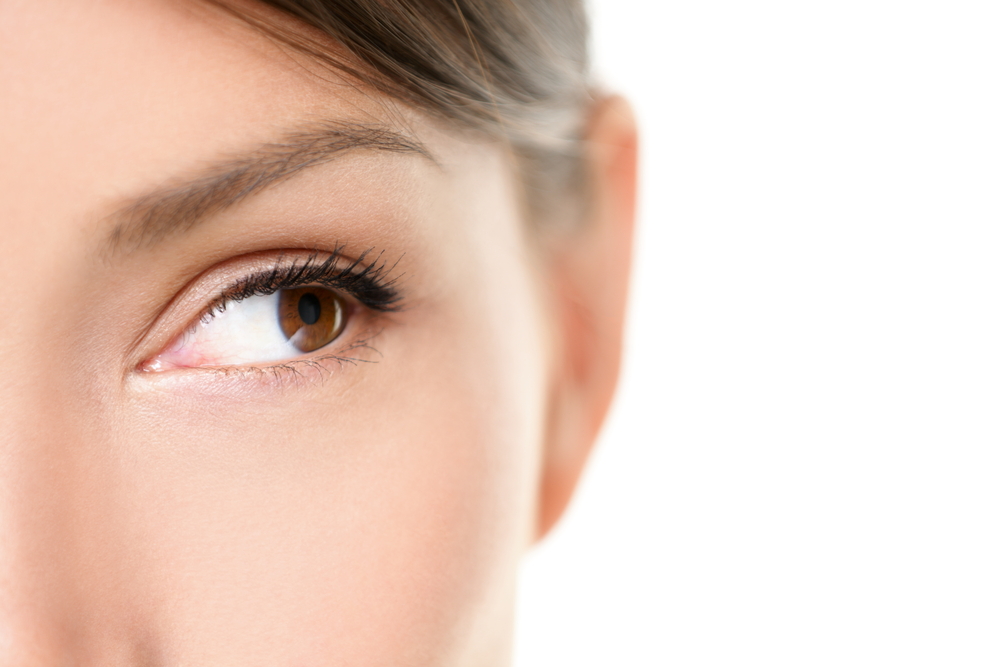Dry Eye Treatment in Cincinnati and Northern Kentucky
Are you troubled by eyes that are itchy, irritated, teary, or red? If so, you could be one of millions of people affected by dry eye disease. Also referred to as keratoconjunctivitis sicca or dry eye syndrome, this condition results when eyes produce insufficient tears or tears that are of poor quality.
Dry eye is a common condition, impacting more than 16 million adults in the United States.1 While occasional dry eye can be uncomfortable and irritating, chronic dry eye can prevent people from enjoying the activities they love and may cause damage to the eyes if left untreated. At Cincinnati Eye Institute, we offer a range of treatments designed to address both the symptoms and causes of chronic dry eye.
What Causes Dry Eye?
Dry eyes are a result of insufficient tear production or of tear that are of poor quality. Tears, the natural lubricant for the eyes, are actually made up of three layers: an oily layer, a watery layer, and a mucus layer.

Each of these layers has a distinct purpose when it comes to lubricating our eyes, keeping them clean, and keeping them healthy. A lack of tears or a problem with any one of these tear layers can cause chronic dry eye.2
There are certain conditions that may contribute to dry eyes, such as:
- Age
- Extended screen time
- Prolonged exposure to the sun
- Hormonal imbalances or changes
- Medications
- Dysfunction of the meibomian gland in the eye (meibomian gland dysfunction/MGD)
- Medical conditions including thyroid disorders, lupus, or rheumatoid arthritis
Dry Eye Disease Symptoms
Of course, frequently dry eyes is a symptom of dry eye syndrome, but there are also other symptoms of poor or inadequate tears. Symptoms of dry eye generally affect both eyes, and may include:
- Stinging or burning
- Itching
- A feeling of grittiness
- Sensitivity to light
- Eyes that water frequently
- Feeling like there is something in your eyes
- Redness
- Mucus on or around the eyes
- Struggling with vision while driving at night
- Difficulty wearing contacts
- Eye fatigue
- Blurred vision3
Treatment for Dry Eye Disease
If you have struggled with dry eyes and have not achieved suitable relief with over-the-counter eye drops, our ophthalmologists can recommend a number of treatment options.
Nonsurgical Dry Eye Treatment
- Warm compresses
- Prescription eye drops
- Deliberately blinking more frequently
- Evaluating medications you take to determine if one may be causing dry eye
- Lifestyle changes, such as adding Omega-3 fatty acids to your diet, using a humidifier, or avoiding environmental irritants
- Non-invasive treatment to unblock clogged eyelid (meibomian) glands
- Tailor Made Tears: Also referred to as autologous serum eye drops (ASED), these are replacement tears that are custom compounded to work in harmony with each patient’s unique body chemistry. Tailor Made Tears are prescription eye drops made from a patient’s own blood serum, which has been diluted to create an effective tear substitute.

Surgical Treatments
When non-invasive treatments and lifestyle changes don’t alleviate symptoms of dry eye, there are a number of surgical treatments available, such as:
- Limiting eye drainage by inserting punctal plugs
- Permanently closing drainage holes through punctal cautery
- Management of an underlying disease or condition that causes dry eye
- Eyelid surgery
Schedule an Appointment
If you are suffering from uncomfortable symptoms of dry eye disease, the experienced doctors at Cincinnati Eye Institute can help you achieve lasting relief. To learn more, please contact us to schedule an appointment.
Frequently Asked Questions About Dry Eye
My eyes water too much. Why was I diagnosed with dry eye?
It may seem odd that overly watery eyes are a symptom of dry eye disease, but it’s true. Excessive tearing is your body’s way of reacting to irritation or excessive dryness of the eyes.
Can dry eye be cured?
For most patients, dry eye disease cannot be cured. However, with effective treatment our ophthalmologists are able to provide patients with significant, long-lasting symptom relief and prevent eye damage.
Can dry eye disease damage my eyes?
In cases where patients suffer from severe, chronic dry eye, it is possible to incur damage to the eyes. Untreated dry eye may lead to pain, corneal ulcers, corneal scars, and even vision loss.
1 Farrand KF, Fridman M, Stillman IÖ, Schaumberg DA. Prevalence of Diagnosed Dry Eye Disease in the United States Among Adults Aged 18 Years and Older. Am J Ophthalmol. 2017;182:90‐98. doi:10.1016/j.ajo.2017.06.033. Available: https://pubmed.ncbi.nlm.nih.gov/28705660/. Accessed March 26, 2021.
2 American Academy of Ophthalmology. What is dry eye? Available: https://www.aao.org/eye-health/diseases/what-is-dry-eye. Accessed March 26, 2021.
3 Mayo Clinic. Dry Eyes. Available: https://www.mayoclinic.org/diseases-conditions/dry-eyes/symptoms-causes/syc-20371863. Accessed March 26, 2021.
